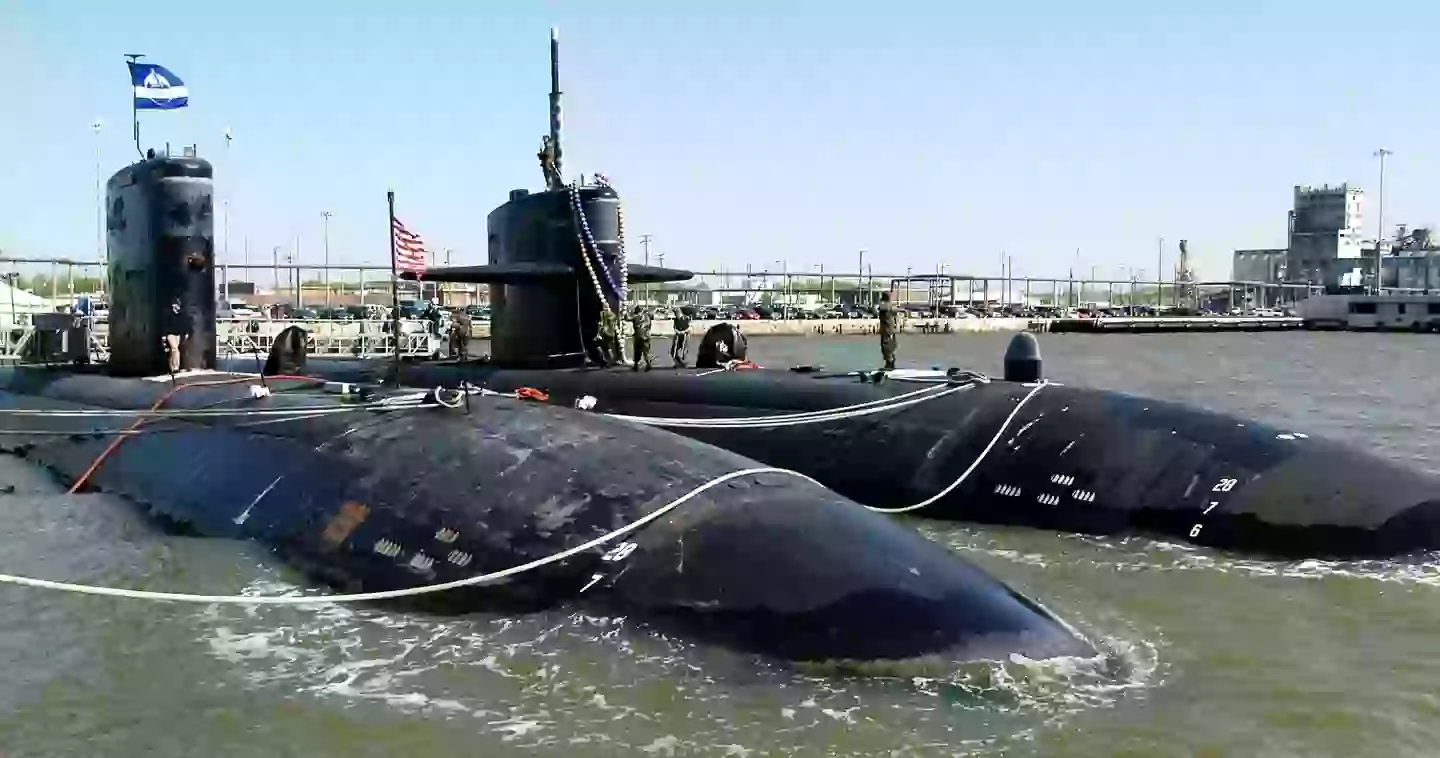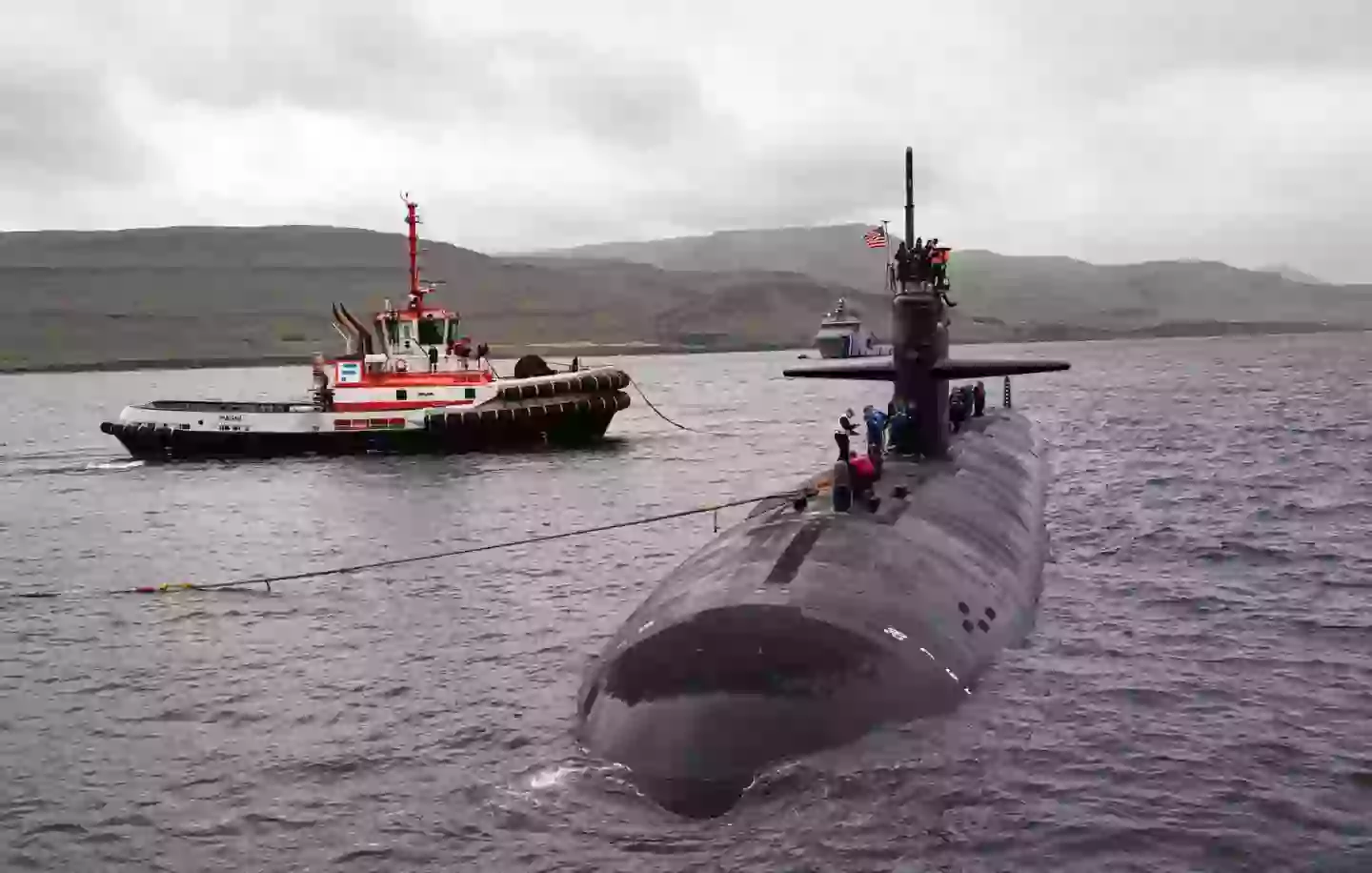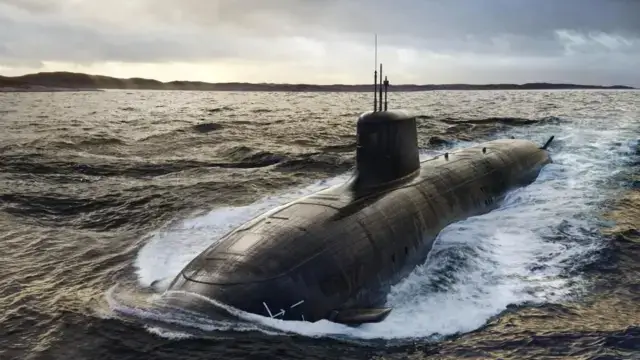Historic US Submarine Deployment to Iceland Signals Strategic Arctic Deterrence Against Russian Expansion
USS Newport News makes groundbreaking port call as NATO allies strengthen Arctic security cooperation amid growing geopolitical tensions
July 10, 2025 – The United States Navy has achieved a significant strategic milestone with the first-ever port visit of a nuclear-powered attack submarine to Iceland, marking a historic moment in Arctic security cooperation and sending a clear deterrent message to potential adversaries in the region. The USS Newport News completed its unprecedented stop in Icelandic waters on July 9, representing a pivotal development in NATO’s collective defense strategy amid escalating concerns about Russian military activities in the Arctic.

Strategic Context and Geopolitical Significance
The deployment of the USS Newport News to Iceland occurs against a backdrop of heightened global tensions and increasing focus on Arctic security. Current international circumstances, including ongoing conflicts in Eastern Europe and the Middle East, have intensified the strategic importance of maintaining strong defensive positions in key geographic regions, particularly the Arctic where Russia has been expanding its military presence.

The Arctic region has emerged as a critical theater for international security considerations, with melting ice caps creating new shipping routes and access to previously unreachable natural resources. This environmental transformation has sparked increased competition among global powers seeking to establish or maintain influence in the region, making cooperative defense arrangements between allies increasingly important.
Iceland’s geographic position makes it a strategically vital location for monitoring and controlling access to Arctic waters. The island nation sits at the confluence of the North Atlantic and Arctic Oceans, providing an ideal observation point for naval activities and serving as a forward position for Western military assets in the region.
Military Leadership Perspectives on the Mission
Admiral Stuart B. Munsch, Commander of US Naval Forces Europe-Africa, emphasized the historic nature of the deployment and its broader implications for regional security. In his official statement regarding the port visit, Admiral Munsch characterized the event as “a pivotal moment, underscoring our unwavering commitment to collective defense and Arctic security.”
The Admiral’s remarks highlighted the advanced capabilities that submarine forces bring to international security arrangements. “Our submarine forces are advanced and vital to ensuring the security of our nations and our Alliance – patrolling the depths and providing a deterrent in an increasingly complex and contested world,” he stated, emphasizing the technological superiority and strategic value of nuclear-powered submarines in modern naval operations.
Admiral Munsch also addressed the deterrent message inherent in the deployment, explaining to defense analysts that the port call serves multiple strategic purposes beyond its immediate tactical value. The visible demonstration of US naval capabilities in Icelandic waters represents a clear signal to potential adversaries about American and NATO presence in the Arctic region.
Bilateral Cooperation and Diplomatic Foundations
The successful completion of this historic port visit builds upon diplomatic groundwork established in 2023 when Iceland first permitted US nuclear-powered submarines to enter its territorial waters. This initial agreement represented a significant policy development that demonstrated growing cooperation between the two nations on Arctic security matters.
The 2023 decision to allow US submarine access reflected Iceland’s recognition of the changing security environment in the Arctic and the need for enhanced cooperation with NATO allies to address emerging challenges. This policy shift provided the foundation for the current deployment and established precedent for future military cooperation between the United States and Iceland.
Erin Sawyer, representing the US Embassy in Iceland, articulated the shared strategic vision that underlies this cooperation. “The United States and Iceland maintain the shared goal of low tension in the Arctic, with full awareness of Russia’s efforts to build its military presence in the region,” she explained, highlighting the specific threat that has motivated increased Western coordination in Arctic waters.
Sawyer further emphasized the collaborative nature of the mission, stating that “deep coordination with our incredible NATO ally Iceland to achieve this historic visit demonstrates our commitment to freedom of navigation and the security of our allies in the region.” This statement underscores the importance of multilateral cooperation in addressing security challenges that transcend national boundaries.
Operational Excellence and Crew Performance
Commander Eric McCay, who leads the USS Newport News, expressed pride in his crew’s achievement and the historic nature of their mission. “It is an incredible honor for our submarine and crew to make history today with our cherished Ally, Iceland,” Commander McCay stated, acknowledging both the professional accomplishment and the diplomatic significance of their deployment.
The Commander’s remarks also highlighted the exceptional performance standards maintained by his crew throughout the mission. “The Sailors on USS Newport News are dedicated, top-performing submariners who are truly excited to be here,” he noted, emphasizing the professional excellence required for such sensitive and strategically important operations.
The successful execution of this first-ever port visit required extensive planning, coordination, and execution across multiple military and diplomatic channels. The achievement reflects not only the technical capabilities of the submarine and its crew but also the effectiveness of bilateral cooperation mechanisms between the United States and Iceland.
Regional Security Implications and Russian Response
The deployment of the USS Newport News to Iceland occurs within the context of documented Russian military expansion in the Arctic region. Intelligence assessments and military observations have identified increasing Russian naval activity, infrastructure development, and military positioning throughout Arctic territories under Russian control.
Russian Arctic strategy has included the establishment of new military bases, the deployment of advanced weapons systems, and increased naval patrols in waters that had previously seen limited military activity. These developments have prompted corresponding responses from NATO allies seeking to maintain the balance of power and ensure continued access to international waters.
The US submarine deployment represents one element of a broader Western strategy to counter Russian Arctic expansion through enhanced allied cooperation, increased military presence, and demonstration of advanced capabilities. The strategic messaging inherent in such deployments serves both defensive and deterrent purposes, communicating resolve to potential adversaries while reassuring allies of American commitment to collective security.
Technological Capabilities and Strategic Assets
The USS Newport News represents state-of-the-art submarine technology and demonstrates the advanced capabilities that the United States brings to Arctic operations. Nuclear-powered attack submarines possess unique advantages for Arctic deployment, including extended underwater endurance, sophisticated sensing capabilities, and the ability to operate effectively beneath ice coverage.
These technological capabilities make nuclear submarines particularly valuable for Arctic patrol missions, where surface navigation can be challenging due to ice conditions and where the ability to remain submerged for extended periods provides significant tactical advantages. The demonstration of these capabilities through the Iceland port visit sends clear signals about American ability to maintain persistent presence in Arctic waters.
The strategic value of submarine forces extends beyond their immediate tactical capabilities to include their role in intelligence gathering, area denial, and force protection missions. The presence of advanced submarines in Arctic waters complicates potential adversary planning and provides allied forces with enhanced situational awareness and response capabilities.
NATO Alliance Coordination and Future Implications
The successful completion of the USS Newport News port visit strengthens NATO’s collective approach to Arctic security and demonstrates the effectiveness of alliance coordination mechanisms. The mission required cooperation across multiple alliance frameworks, including bilateral US-Iceland agreements and broader NATO strategic planning processes.
This coordination model may serve as a template for future allied cooperation in Arctic security matters, establishing procedures and relationships that can be expanded to address evolving threats and opportunities in the region. The demonstrated ability to execute complex international military cooperation provides confidence in alliance capabilities to respond to future challenges.
The precedent established by this deployment may encourage similar cooperation arrangements with other Arctic nations, potentially expanding the network of allied positions available for Western military assets in the region. Such expansion would enhance overall deterrent capabilities while providing additional options for responding to security challenges.
Long-Term Strategic Considerations
The historic nature of the USS Newport News deployment reflects broader trends in international security that are likely to continue influencing Arctic policy for years to come. Climate change continues to alter the physical geography of the Arctic, creating new strategic challenges and opportunities that will require sustained international attention.
Economic factors, including access to natural resources and new shipping routes, will continue to drive international interest in Arctic territories and waters. Military cooperation arrangements like the US-Iceland submarine agreement provide frameworks for managing these interests while maintaining regional stability.
The success of this initial deployment establishes foundation for expanded US-Iceland military cooperation and may influence similar partnerships throughout the Arctic region. The demonstrated benefits of such cooperation for both deterrence and alliance strengthening suggest that similar arrangements may become increasingly common.
Conclusion
The first-ever port visit of the USS Newport News to Iceland represents a significant milestone in Arctic security cooperation and demonstrates the evolving nature of international military partnerships in response to changing strategic circumstances. The successful execution of this historic mission reflects the effectiveness of bilateral cooperation between the United States and Iceland while sending clear deterrent messages to potential adversaries in the region.
The deployment’s success establishes important precedents for future Arctic operations and provides a model for enhanced alliance cooperation in addressing regional security challenges. As geopolitical tensions continue to evolve and Arctic accessibility increases due to environmental changes, such cooperative arrangements will likely become increasingly important for maintaining regional stability and protecting allied interests.
The strategic significance of this deployment extends beyond its immediate tactical value to encompass broader questions of alliance solidarity, deterrent effectiveness, and cooperative security arrangements. The USS Newport News port visit demonstrates that even in an era of great power competition, allied cooperation can provide effective responses to security challenges while maintaining stability and promoting peaceful resolution of international disputes.

Ethan Blake is a skilled Creative Content Specialist with a talent for crafting engaging and thought-provoking narratives. With a strong background in storytelling and digital content creation, Ethan brings a unique perspective to his role at TheArchivists, where he curates and produces captivating content for a global audience.
Ethan holds a degree in Communications from Zurich University, where he developed his expertise in storytelling, media strategy, and audience engagement. Known for his ability to blend creativity with analytical precision, he excels at creating content that not only entertains but also connects deeply with readers.
At TheArchivists, Ethan specializes in uncovering compelling stories that reflect a wide range of human experiences. His work is celebrated for its authenticity, creativity, and ability to spark meaningful conversations, earning him recognition among peers and readers alike.
Passionate about the art of storytelling, Ethan enjoys exploring themes of culture, history, and personal growth, aiming to inspire and inform with every piece he creates. Dedicated to making a lasting impact, Ethan continues to push boundaries in the ever-evolving world of digital content.
